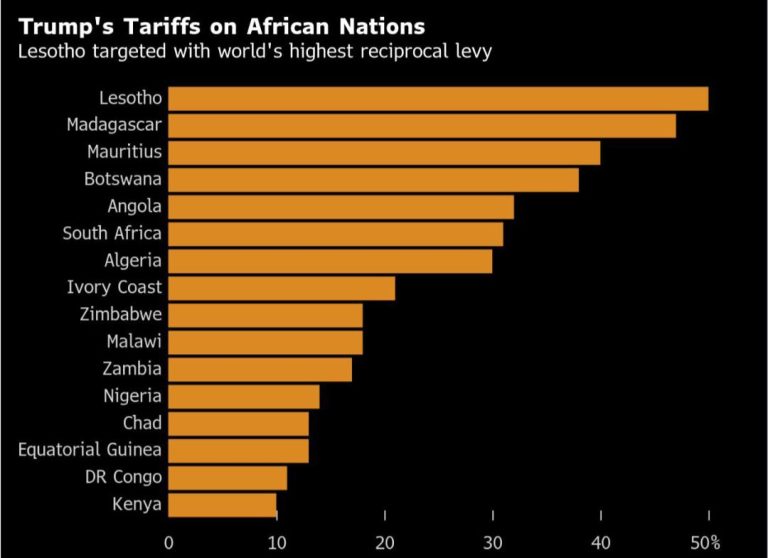Lesotho is in a state of economic and political anxiety following the United States’ threat to impose tariffs on textile imports from several African nations, including Lesotho. The possible policy shift has triggered widespread concern in the tiny Southern African kingdom, whose economy heavily relies on garment exports to the U.S. market under the African Growth and Opportunity Act (AGOA).
At the heart of the concern is Lesotho’s multibillion-maloti apparel sector, which employs over 40,000 workers mostly women and accounts for more than 80% of the country’s manufacturing exports. The potential tariffs, reportedly under review as part of a broader U.S. reassessment of trade privileges, could severely undermine the sector’s competitiveness and destabilize the country’s already fragile economy.
“Our factories depend almost entirely on duty-free access to the U.S.,” said Lineo Motsoeneng, a supervisor at a Maseru-based textile firm. “If tariffs come in, buyers will take their orders to Asia or elsewhere in Africa.”
The U.S. government has cited concerns about labor practices, governance issues, and AGOA eligibility criteria as reasons for the review. While Lesotho has made strides in labor rights reforms in recent years, watchdog groups say enforcement remains inconsistent.
Government officials are scrambling to respond. Trade Minister Thabo Makhetha has announced an emergency delegation to Washington, aiming to lobby U.S. lawmakers and safeguard Lesotho’s AGOA status.
“We are taking this very seriously. Lesotho cannot afford to lose access to the U.S. market,” Makhetha said at a press briefing Tuesday.
As the uncertainty deepens, workers, factory owners, and policymakers alike are calling for urgent diplomatic action to prevent a potential economic crisis.

